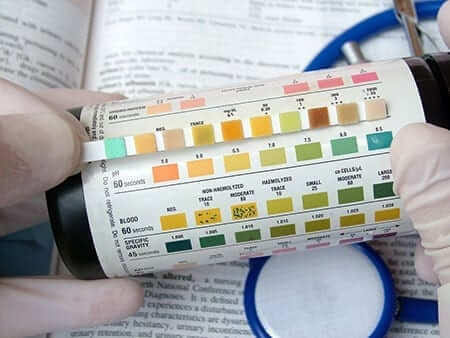how to detect diabetes in urine Urine diabetes test
Synthetic biology is revolutionizing the field of medicine, enabling scientists to engineer cells that can detect diseases such as diabetes and cancer. This cutting-edge technology holds immense potential for improving diagnostic methods and advancing personalized healthcare.
An Exciting Breakthrough: Engineered Cells Detect Diabetes and Cancer
 One of the most promising applications of synthetic biology is the creation of engineered cells that are capable of detecting diabetes and cancer. These cells are designed to recognize specific biomarkers or molecular signals that indicate the presence of these diseases in the body.
One of the most promising applications of synthetic biology is the creation of engineered cells that are capable of detecting diabetes and cancer. These cells are designed to recognize specific biomarkers or molecular signals that indicate the presence of these diseases in the body.
Imagine a future where a simple urine test could provide accurate and early detection of diabetes. Researchers have made significant progress in developing synthetic cells that can detect glucose levels in urine, which is a key indicator of diabetes. By harnessing the power of genetic engineering, these cells can produce a visible color change or fluorescent signal when exposed to high glucose levels, alerting individuals to the need for further medical evaluation.
A similar approach has been taken to detect cancer using engineered cells. Scientists are creating cells that can identify specific cancer biomarkers, such as tumor-associated antigens or mutated genes. These cells can be integrated into diagnostic tests, enabling early detection and potentially saving countless lives. By leveraging the capabilities of synthetic biology, researchers are opening up new avenues for precision medicine and targeted therapies.
The Urine Diabetes Test: A Game-Changer in Medical Diagnostics
 In the field of diabetes diagnosis, the urine test has long been considered a reliable method. However, with the advent of synthetic biology, this test is becoming even more accurate and accessible. The integration of engineered cells into urine diabetes tests holds tremendous potential for improving patient outcomes and reducing healthcare costs.
In the field of diabetes diagnosis, the urine test has long been considered a reliable method. However, with the advent of synthetic biology, this test is becoming even more accurate and accessible. The integration of engineered cells into urine diabetes tests holds tremendous potential for improving patient outcomes and reducing healthcare costs.
Traditionally, urine diabetes tests involve analyzing the levels of glucose in urine samples. A positive result indicates elevated glucose levels, which can be indicative of diabetes. However, these tests often require laboratory analysis and can be time-consuming. With the introduction of synthetic biology, urine diabetes tests can be simplified and made more user-friendly.
The integration of engineered cells into urine diabetes tests allows for rapid and on-the-spot results. A simple dipstick or handheld device can be used to test urine samples, and the presence of synthetic cells will trigger a visible color change or other detectable signal if high glucose levels are detected. This eliminates the need for complex laboratory procedures and enables individuals to monitor their diabetes status in the comfort of their own homes.
Advancing Personalized Healthcare with Synthetic Biology
The marriage of synthetic biology and medicine has far-reaching implications for personalized healthcare. By engineering cells to detect specific diseases, researchers can develop targeted diagnostic tools and treatments that are tailored to each individual’s unique biology.
Imagine a future where cancer can be detected in its earliest stages, allowing for prompt and successful intervention. Synthetic biology offers the potential to create diagnostic tests that can accurately identify the presence of cancer cells before they have a chance to spread. This early detection could significantly improve patient outcomes and increase survival rates.
Furthermore, synthetic biology has the potential to revolutionize treatment options for diseases such as diabetes and cancer. By understanding the underlying molecular mechanisms of these diseases, scientists can engineer cells to produce therapeutic molecules or targeted therapies that specifically address the root cause. This approach holds promise for more effective and personalized treatments, minimizing side effects and maximizing efficacy.
In conclusion, synthetic biology is transforming the landscape of medicine, offering new possibilities for disease detection and personalized healthcare. The integration of engineered cells into diagnostic tests is paving the way for more accurate and accessible medical diagnostics. With ongoing advancements in this field, we can look forward to a future where diseases such as diabetes and cancer can be detected early and treated more effectively, ultimately improving patient outcomes and quality of life.
If you are looking for Synthetic biology: Engineered cells detect diabetes and cancer you’ve visit to the right page. We have 5 Pics about Synthetic biology: Engineered cells detect diabetes and cancer like Urine diabetes test - Stock Image - C014/1231 - Science Photo Library, Urine Test For Diabetes Type 2 - DiabetesWalls and also Urine diabetes test - Stock Image - C014/1231 - Science Photo Library. Here it is:
Synthetic Biology: Engineered Cells Detect Diabetes And Cancer
 medicalxpress.combacteria engineered detect diabetes cancer diagnosis inserm bonnet modified principle medical credit use synthetic biology cells
medicalxpress.combacteria engineered detect diabetes cancer diagnosis inserm bonnet modified principle medical credit use synthetic biology cells
Urine Diabetes Test - Stock Image - C014/1231 - Science Photo Library
 www.sciencephoto.comurine diabetes
www.sciencephoto.comurine diabetes
Urine Diabetes Test - Stock Image - C014/1230 - Science Photo Library
 www.sciencephoto.comurine
www.sciencephoto.comurine
Diabetes Urine Test – What First Timers Need To Know - Be Well Buzz
 www.bewellbuzz.comurine nurse female diabetes testing drug test know sample empty bottle background thumbs wheelchair corps disabled soldier comforting marine light
www.bewellbuzz.comurine nurse female diabetes testing drug test know sample empty bottle background thumbs wheelchair corps disabled soldier comforting marine light
Urine Test For Diabetes Type 2 - DiabetesWalls
 diabeteswalls.blogspot.comurine ketoacidosis
diabeteswalls.blogspot.comurine ketoacidosis
Bacteria engineered detect diabetes cancer diagnosis inserm bonnet modified principle medical credit use synthetic biology cells. Diabetes urine test – what first timers need to know. Synthetic biology: engineered cells detect diabetes and cancer